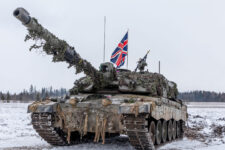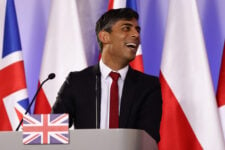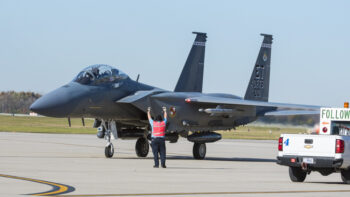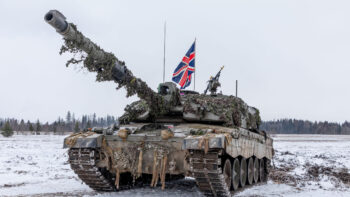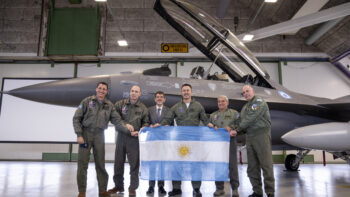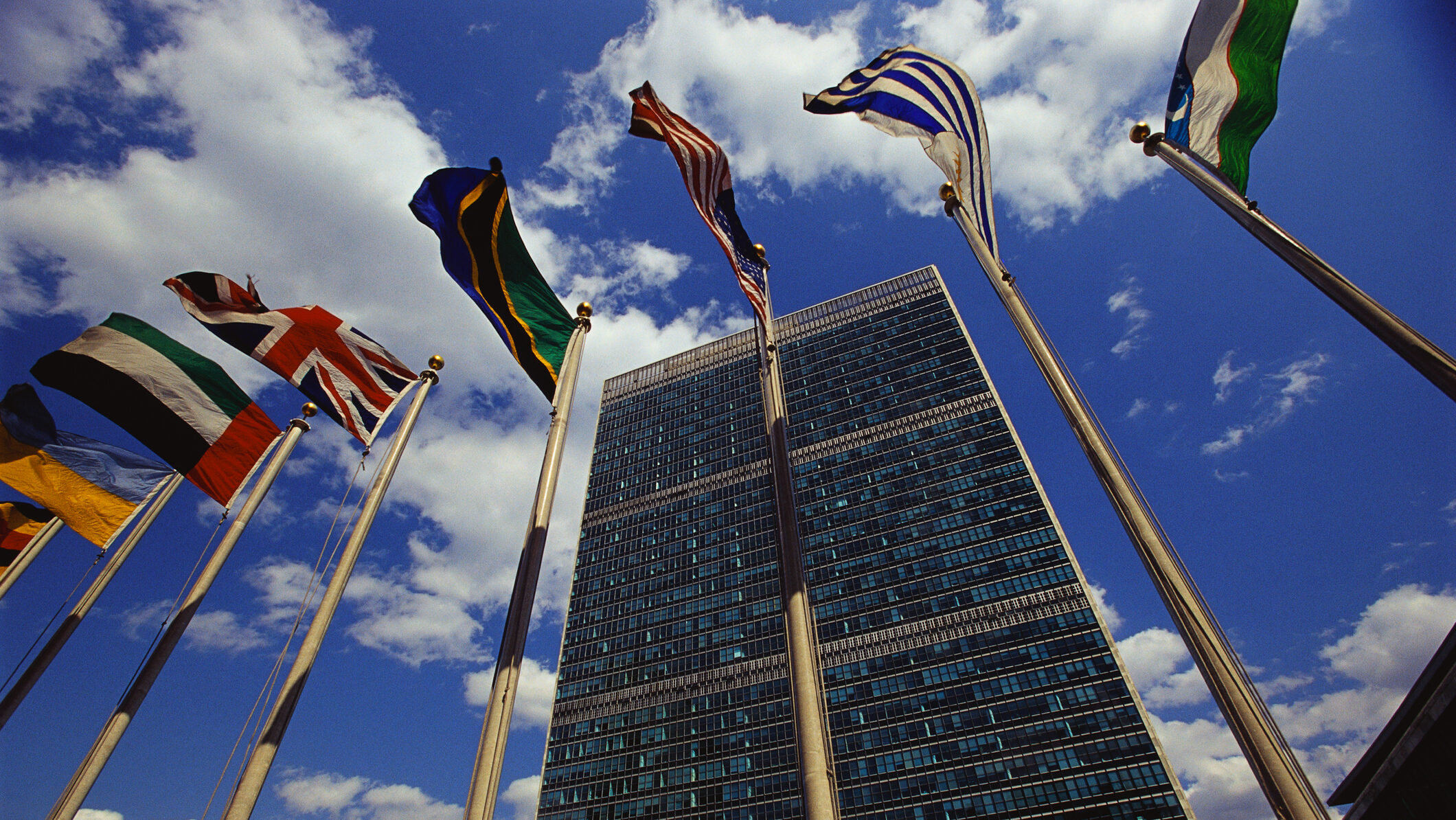
Flags fly outside the General Secretariat Building at the United Nations Headquarters. (Getty Images)
WASHINGTON — A United Nations committee vote to split future work on measures to keep the peace in space into two working groups with different goals — one focused on norms primarily supported by the US and its allies, the other on a legal treaty pushed by Russia and China — is raising concerns that both will flounder in the shoals of geopolitical competition.
The move by the UN’s First Committee, responsible for international security affairs, during its October session to put forward both draft resolutions to the General Assembly “had delegations warning that parallel processes would lead to further polarization and fragmentation of efforts to preserve space security,” a UN press release concluded in surprisingly blunt language.
Jessica West, who followed the proceedings for Canada’s Project Ploughshares, told Breaking Defense that while “in theory” the two efforts could help forward “practical” space diplomacy, “the reality is that they are set up as competing approaches. And few states have the resources or the will to engage in six weeks of dedicated discussions on space in Geneva each year.”
“Space diplomacy has long felt like a treadmill, with ongoing discussions that lead nowhere; this development feels like we’ve been given a second treadmill, and not everyone will be able to keep up,” she added.
Secure World Foundation’s Victoria Samson was a bit more optimistic that the two processes could be complementary in the end.
“I don’t think anyone’s thrilled about the idea of simultaneous OEWGs [Open-Ended Working Groups] on very similar topics. However, dual OEWGs do not necessarily mean that they are dueling OEWGs, and perhaps the division of topics will prevent squabbles over how/whether to include legally-binding options in the norms discussions (and vice versa),” she told Breaking Defense in an email.
On the other hand, Samson echoed West’s concern about the ability of small- and medium-sized nations, as well as those with less funding to throw around, “to dedicate staff for all these meetings.”
The United Kingdom led the effort to re-create the working group on reducing space threats through norms and rules of responsible behavior that ran from February 2022 to September 2023. While a volley of Russian procedural firebombs threw the outcome of that OEWG into diplomatic limbo, a large number of the participants hailed progress made towards a convergence of views about useful voluntary measures to dampen military flash points in space — including growing support of the US-proposed voluntary ban on testing of destructive, direct ascent anti-satellite missiles.
The UK draft resolution, A/C.1/78/L.15/Rev.1, calls for four one-week OEWG sessions over 2025 and 2026. It was approved by a vote of 166 in favour, nine against (Belarus, China, Cuba, North Korea, Iran, Mali, Nicaragua, Russia, and Syria), with 5 abstentions (India, Niger, Pakistan, Sri Lanka, and Tajikistan).
In a just-published article [PDF] in Reaching Critical Will’s “First Committee Monitor,” West noted that Iran, Russia, Pakistan, Sri Lanka, India, China, and Cuba took to the floor to denounce the proposal, with one key objection being that there is no objective way to determine what is “responsible” behavior. Russia [PDF] and Iran [PDF] also argued that the development of norms would limit access space to by newcoming countries — an argument that carries heavy political baggage in much of the developing world.
Instead, Russia, along with Belarus, China, Cuba, Djibouti, Equatorial Guinea, Iran, Syria, and Zimbabwe proposed a separate OEWG process (A/C.1/78/L.55) to flesh out the terms of a legal treaty to prevent the placement of weapons in outer space, based on a treaty text Russia and China have been pushing, with some tweaks, for at least two decades. The proposal would have the group meet in two two-week sessions each year between 2024 and 2028. It also makes no provisions for inclusion of non-state actors, including from industry and civil society — something Moscow bitterly fought in the previous OEWG.
That draft resolution was approved by a vote of 122 in favor to 49 against, with 7 abstentions (Chile, Fiji, Georgia, Guatemala, Honduras, Papua New Guinea, and Switzerland). West noted in her article that speaking out to oppose were: the US jointly with the UK and France; the European Union, jointly with several other states; Australia; New Zealand; Canada; Japan; and Tukey.
Bruce Turner, US ambassador to the UN, in an Oct. 2 statement urged other countries to vote against the Russian-led OEWG proposal, calling it “divisive” and asserting that such “narrowly focused” discussions “cannot achieve consensus.”
Both draft resolutions will now go to the 193-nation UN General Assembly for debate during its next meeting in December, and are expected to be approved.
France, Germany ink deal on way ahead for ‘completely new’ future European tank
Defense ministers from both countries hailed progress on industrial workshare for a project that they say “will be a real technological breakthrough in ground combat systems.”





